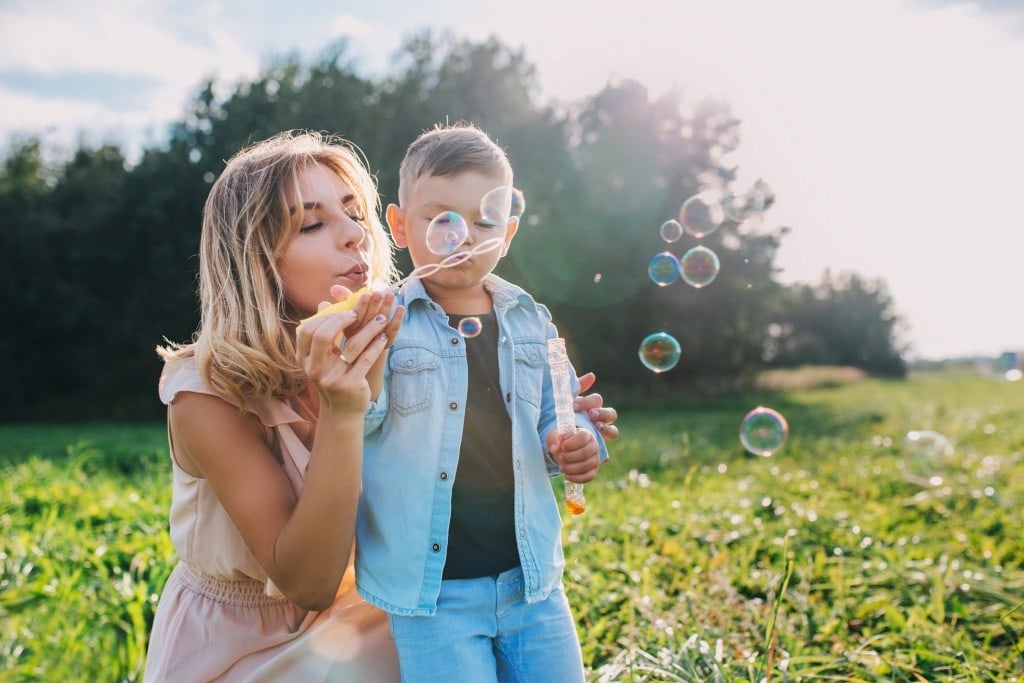Parents are the center of a child’s life. They are the sun, the moon, and the stars—and vice versa. Unfortunately, moms and dads can sometimes get preoccupied with the day-to-day pressures of working, maintaining the household, and keeping kids entertained. Sometimes, we forget that what really matters to our kids is quite simple. Here are seven little things parents can do for kids that mean the world to them.
1. Stop and Listen
For kids—and, yes, adults—behavior is communication. If a child is fussy, angry, temperamental, or just plain rude, it might be a sign that she needs to sit down and talk. Don’t think about the pause in terms of “giving in” to poor behavior. Instead, note how much time you might spend on your phone, in front of a computer, or taking care of the house. Consider whether you’ve put aside time to listen to their deepest feelings and worries. Bedtime is an excellent opportunity to connect daily and actively listen without judgment, interruption, or compulsion to make things better. Just being there and offering unconditional love and support is all kids want.
2. More Hugs and Cuddles
Studies show that more hugging helps brain development in children and that there are also several more benefits to having that extra cuddle time.1,2 Hugs help kids with social and emotional development and support healthy habits and attitudes. Kids who get a lot of hugs have a better time building resilience and managing their emotions. Everyone needs a physical connection to feel safe, seen, and heard. Admit it. Even parents need a hug when life gets overwhelming. Hugs are life!
3. Slow Down
What does it mean to slow down as a family? Bernadette Noll, author of Slow Family Living: 75 Simple Ways to Slow Down, Connect, and Create More Joy, writes, “It is about allowing family life to unfold in a way that is joyfully and consciously connected. This means slowing it down, finding comfort in the home, and creating the space to see and honor the family as an entity while simultaneously keeping sight of each member as a unique and valuable individual.” In a practical sense, this means finding moments in the day when “to-do” lists can take a back seat to moments of togetherness and joy. For kids, setting aside the laundry for an impromptu backyard tea party makes memories that build connections.
4. Read to Them
Reading is one of the most powerful bonding experiences a parent and child can experience together. Taking time to settle in with a good book (or many) includes some of the other “little things” parents do that mean a lot to kids: listening, cuddling, and slowing down. Reading to kids shows them you care enough to give them your time, attention, and love. Time spent reading together can be both relaxing and energizing. New stories can spark conversations and help kids share more about what they care about and what’s on their minds. This quality time can become a cornerstone of a daily routine when kids know their parents will give them their undivided attention.
5. Play Their Games
Play isn’t just about tossing a ball or helping with a puzzle. Kids appreciate games based on their particular interests. So, if dinosaurs are their “thing,” go above and beyond digging out the figurines from the toy box. Take playing with them to the next level and get creative—even for just 30 minutes! Use whatever is available in the house to make a costume and put together a short, improvised dinosaur-themed play. Or sit down with the kids and ask them everything they love about dinosaurs. Print out pictures online and start an art project or set up a dinosaur-themed scavenger hunt. Show the kids that you are interested in their passions and help them to explore them in fun and engaging ways.
6. Affirm
Sometimes, parents are so concerned about correcting children to help them succeed and grow they forget about the power of positive affirmations. Kids need to hear—from the most important people in their lives—that they are resilient, capable, and lovable little humans. Let them know that they are loved exactly as they are, no matter what, by giving your kids positive affirmations like:
- I love being with you.
- I’m proud of how hard you try.
- You are brave.
- I’m proud to be your mom.
- You make me happy.
- Your ideas are so creative.
- I love your sense of humor.
- You make me smile and laugh.
- I love the way you support your friends.
Even when your child is experiencing pain, you can offer positive affirmations. For example, try being a calm and affirming presence for them instead of a fixer by saying things like:
- That looks like it hurt. That happened to me once. It’s painful, and I’m right here beside you.
- I know you worked hard for that award. It was important to you. But I’m so proud of your effort.
- This project is challenging for you. You’ve never done anything like this before. But the truth is, I know you can do hard things. I believe in you.
7. Tell the Truth
Parents often want to shield kids from certain realities. Other times, grownups just don’t want to fess up to something they’ve done wrong. In both instances, kids not only can handle honesty, but they need it. Children can feel confused, scared, or angry during challenging times. So take the time to share what information you can in age-appropriate ways to help ease their anxieties and frustrations. And apologize if you’ve lost your temper or made a mistake in how you emotionally handled a situation. Telling children the truth about hard situations and your shortcomings shows them that you value their feelings and respect them as the beautiful people they are. And that’s everything.
































